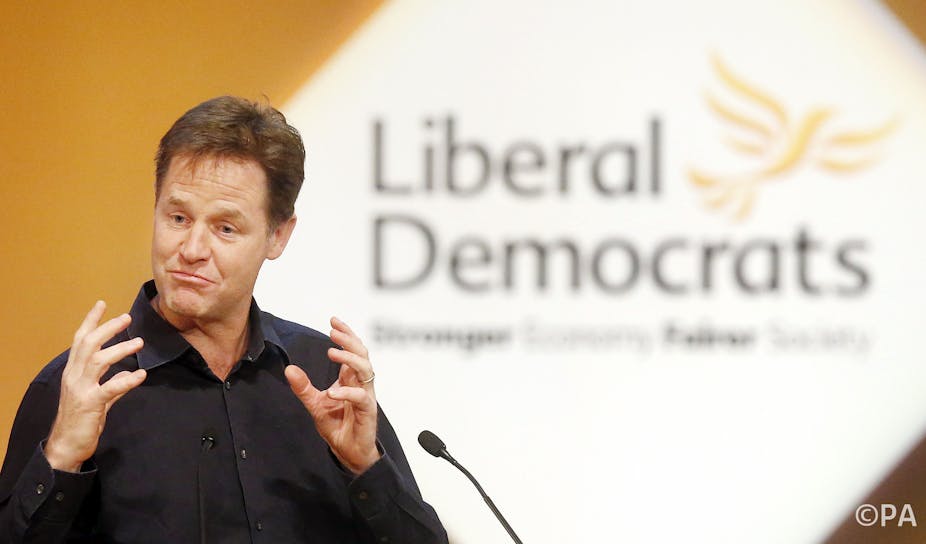Much has been written over recent years about the rise of political marketing and the increasingly calculated way in which politicians craft messages designed to maximise appeal to voters.
Attention has been directed to the rise of focus groups, the use of opinion polling and message testing. Parties have poured resources into message development and have hired in expertise. The Conservative Party has recruited Lynton Crosby, the svengali behind the Australian Liberal Party’s recent successes, and Labour has hired David Axelrod, who ran Barack Obama’s 2008 campaign.
As the 2015 campaign sprint gets underway, it’s already clear that the Conservatives will be promoting an electoral message focused upon economic recovery while Labour will concentrate on the NHS and the cost of living.
The Liberal Democrats, in contrast, are offering a different kind of message, and trying to depict themselves as sensible, even brave, ideological centrists.
Fired up, ready to … what?
The party’s website revolves around this point. The front page is emblazoned with an exuberant message of centrism: “Vote safely this election: look left, look right – then cross Liberal Democrats.”

This rationale has been advanced by Nick Clegg in particular ever since 2010. As he sees it, British politics needs a mediating third force. Whereas the Conservatives are too right-wing and austere and Labour too left-wing and unreliable, the Liberal Democrats occupy the sweet spot of British politics, promoting liberal values they believe the majority of the population share.
This was the central pillar of Clegg’s 2015 spring conference speech, in which he pledged to be standing up for “the liberal Britain in which we and millions of decent, reasonable people believe”. The pitch sold an idea of the party as a credible and reliable force, stressing competence, common-sense values and a willingness to defend the national interest rather than extreme partisan ideologies.
It’s interesting that the Liberal Democrats are advancing this image. Historically, the party has positioned itself as an outsider force, often putting across a highly ideological message.
Even as recently as 2010, Clegg helmed a campaign built on the promise of a “new politics”, and much of its previous electoral message emphasised egalitarian, progressive values and fairness. That message was an attempt to tap into the politics of hope and change that proved so effective in the US for Obama, and it briefly helped Clegg surge to the top of the opinion polls.
But for the 2015 general election, the Liberal Democrats appear to have moved away from this approach, placing less emphasis on their left-wing ideology and political change and more on competence and common sense values. While the triangulation strategy may mesh well with the cold rationality of electoral marketing and reflect the party’s new maturity as a party of government, it will do little to set political pulses racing.
Staking out what Clegg has often called the “radical centre” may be logical and pragmatic in a polarised political scene, but it won’t do much to fire up what remains of the Liberal Democrats’ base vote. And in a muddled electoral climate of both apathy and outrage, it’s hard to see how an appeal to moderation will attract anyone’s vote.

